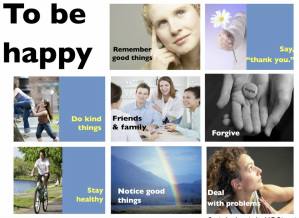- Home
- Awe (NEW 7/24)
- This ain't "happy-ology"...
- Philippiness 2/23 Science of Happiness - Class & Life
- SofH - class & life Spring 2022
- NEW - Time Confetti
- NEW - Happiness Hacks
- NEW - The Power of Fun
- Getting started
- Introducing happiness
- Main Activity Download Center
- 10 Minutes for Happiness (quick tasks)
- Happiness Haiku (consolidation)
- Positive brain chemicals
- New! 3 minutes for positivity
- Becoming Friends
- Savoring
- 5 photos (A savoring task with student projects)
- Flourishing
- Flow
- Positivity
- Laughter
- Meditation
- Mindfulness for kids
- Balloon toss (icebreakers)
- Song/lip dub (Marc's Ss): Pharrell William's HAPPY
- Activities from other teachers
- Don't laugh at me
- Videos of Marc's Talks
- Posters
- Bookshelf (NEW books listed)
- Links
- NUFS MA TESOL task page
- English Firsthand syllabus tie-in
- Monk for a Month (mindfulness)
- Misc PowerPoint downloads
- Contact Marc
- .
- InnovationsPosPsych downloads
- Positive Psychology in SLA (book)
- ..
- NEW BOOK
- test page
- songs for distance teaching
Getting started

Sonja Lyubomirsky, a positive psychology researcher at UC-Riverside identified 8 things that happy, mentally healthy people do. They include:
• Remembering good things that happen.
(Count your blessings)
• Saying, "thank you."/ expressing gratitude
• Doing kind things.
• Taking time for friends and family.
• Forgiving people who hurt us.
• Taking care of our health and body.
• Noticing good thing when they happen
(mindfulness).
• Learning to deal with problems and stress.
When I first saw her list, I noticed many of these are things we cover in English classes anyway. "Family" and "health" are frequent topics in conversation classes. "Remembering" is grammar (past tenses). So is "Noticing good things when they happen" (present simple or present continuous). "Thanking" and "Forgiving" are largely language routines/functions. So, if we are teaching these things anyway, why not put them in a context of happiness and well-being, something emotionally deeper than what we often do (and emotions are useful for stimulating the brain and more thorough learning)?
The first few pages of this website (Introducing happiness, Main Activity Download Center [which is actually 8 sub-pages], 10-minutes for happiness, and Happiness Haiku are mainly made up of activity downloads that work on these items, each with a specific language learning point.
Lyubomirsky has since expanded the list to twelve. "Spirituality" spun off as a subset of learning to deal with problems and stress. She added "Flow" (in the sense that Mihaly Csikszentmihalyi talks about it). Goal setting became another. Avoiding "overthinking". These are all worthwhile. Some have clear ELT classroom application. Others less so. So, for the moment I'll stick to the initial eight. Some of the others are dealt with further into this website.
Here is a short article I wrote for the JALT (Japan Association for Language Teaching) on using the ideas in the classroom.
• Remembering good things that happen.
(Count your blessings)
• Saying, "thank you."/ expressing gratitude
• Doing kind things.
• Taking time for friends and family.
• Forgiving people who hurt us.
• Taking care of our health and body.
• Noticing good thing when they happen
(mindfulness).
• Learning to deal with problems and stress.
When I first saw her list, I noticed many of these are things we cover in English classes anyway. "Family" and "health" are frequent topics in conversation classes. "Remembering" is grammar (past tenses). So is "Noticing good things when they happen" (present simple or present continuous). "Thanking" and "Forgiving" are largely language routines/functions. So, if we are teaching these things anyway, why not put them in a context of happiness and well-being, something emotionally deeper than what we often do (and emotions are useful for stimulating the brain and more thorough learning)?
The first few pages of this website (Introducing happiness, Main Activity Download Center [which is actually 8 sub-pages], 10-minutes for happiness, and Happiness Haiku are mainly made up of activity downloads that work on these items, each with a specific language learning point.
Lyubomirsky has since expanded the list to twelve. "Spirituality" spun off as a subset of learning to deal with problems and stress. She added "Flow" (in the sense that Mihaly Csikszentmihalyi talks about it). Goal setting became another. Avoiding "overthinking". These are all worthwhile. Some have clear ELT classroom application. Others less so. So, for the moment I'll stick to the initial eight. Some of the others are dealt with further into this website.
Here is a short article I wrote for the JALT (Japan Association for Language Teaching) on using the ideas in the classroom.